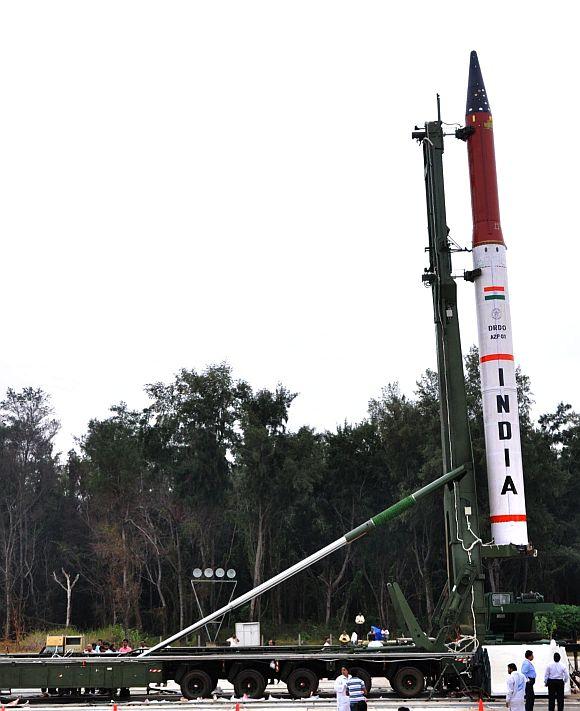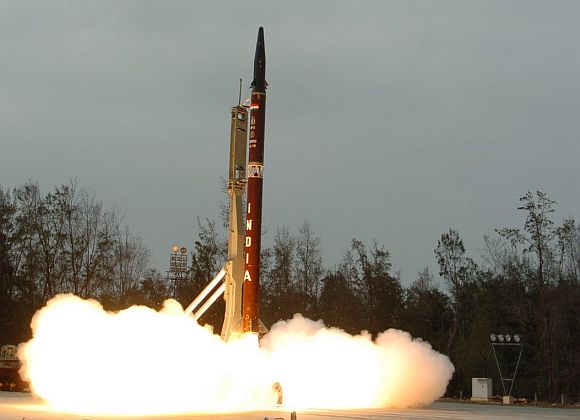Adding teeth to its nuclear deterrence, India on Tuesday successfully test-fired an advanced variant of nuclear-capable Agni-II ballistic missile with a strike range of 3,000 km from an island off Odisha coast.
"The surface-to-surface intermediate range missile was test-fired from a mobile launcher" at 0900 hours from the Integrated Test Range (ITR) at Wheeler Island, about 100 km from Balasore, defence sources said.
Christened "Agni-II Prime", the new missile is a two-stage weapon system powered by solid propellant. It is 20 metres long and launch weight is 17 tonnes. It can carry one ton pay-load.
A Defence Ministry spokesman said in New Delhi that from now on, the missile will be called 'Agni-IV'.
...
India tests new 3,000 km-range Agni-IV missile
Describing the test-firing as "successful", defence sources said the missile's exact performances will be known after all data was collected and analysed from different telemetry and tracking stations as well as naval ships positioned near the terminal point.
"The indigenously developed new variant of 'Agni-II' series missile would have better accuracy and improved range", the sources said.
"While the Agni-II missile has a strike range of 2000 km and Agni-III can hit a target at a distance up to 3500 km, this new variant with a strike range of 3000 km would bridge the gap between Agni-II and Agni-III," they said.
In terms of accuracy, "some more improved features have been incorporated in it," a DRDO scientist said.
The first developmental trial of Agni-II Prime, conducted on December 10, 2010, had failed due to some technical problem in the control system. It deviated from its trajectory within seconds of its lift off from the same base and had plunged into the sea.



article